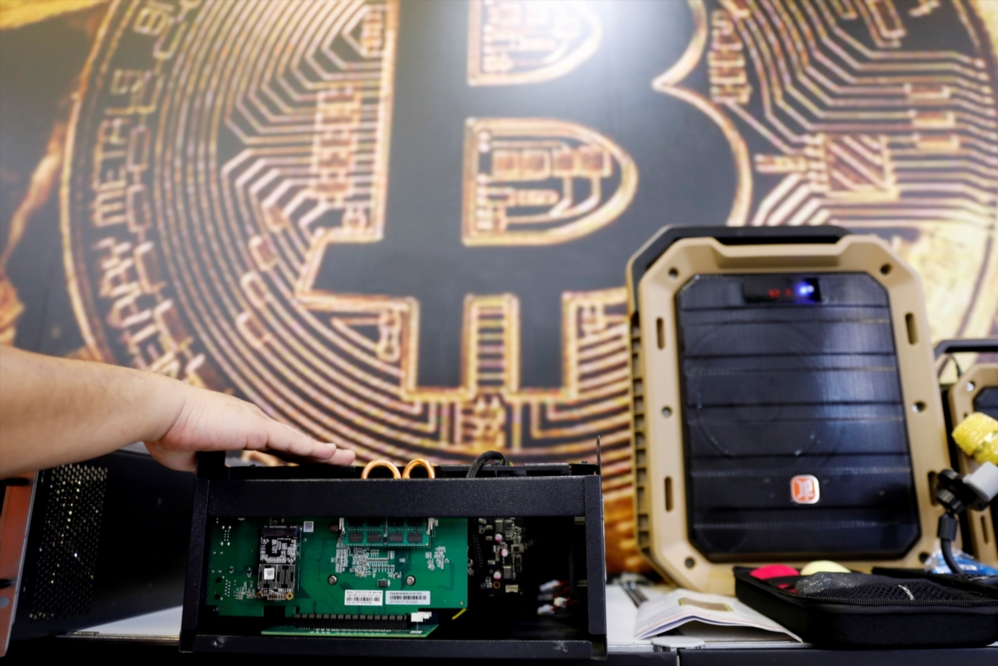Cryptocurrency exchanges who want to use Nasdaq’s proprietary surveillance technology need to have more than money.
A team of about 20 people contribute to helping in an elaborate due-diligence process aimed at ensuring that any exchange who wants to use the technology that scans for fraudulent transaction patterns is both technically capable, and morally inclined to use the powerful software wisely.
For exchanges who pass the test (and can foot the bill) they’ll be granted access to the same surveillance technology Nasdaq itself uses to ensure its clients that trading volume is as free from fraud and manipulation as possible.
So far, seven cryptocurrency exchanges have passed Nasdaq’s muster, according to a Nasdaq representative speaking with Forbes, though only two, Gemini and SBI Virtual Currency, have been publicized. As more cryptocurrency exchanges seek to lure new customers, the assurance of Nasdaq’s technology is already being used to attract institutions and traders used to more mainstream venues.
During a briefing with members of media today, Nasdaq’s head of exchange and regulator surveillance team, Tony Sio, who works within the market surveillance division, shared the questions every cryptocurrency exchange must answer as part of a larger presentation on the state of the industry around the world.
Loading...
“Historically, we don’t do such a large vetting process for our clients because they are much more well-known,” said Sio. “But as we started working with less well-known names, startups, then we realized we needed to do this check process.”
During the briefing at Nasdaq’s offices earlier today, Sio presented a detailed overview of how the company on-boards its crypto exchange clients, broken down in to three categories: Business Model, KYC/AML, and Exchange Governance & Controls.
While the press briefing was for educational purposes, in an interview following, Sio provided Forbes with further context, explaining how his team of legal and technical experts use the criteria to evaluate possible customers for risk. Not everyone makes the cut, he says.
The first section of a document, titled “Key Questions to Ask When Evaluating a Cryptocurrency Exchange,” was called “Business Model.” Of the questions in that section, one jumped out: “How reputable are the products available to trade on the venue?”
What’s interesting about this is that it shows Nasdaq is concerned about who is using crypto assets, and how they are being used. As questions about the importance of how a crypto asset was used in the past (Was it used to buy drugs? Does that matter?) continue to be sorted out, this point will likely only continue to raise in value.
The second section of the document is called “KYC/AML,” which stands for know-your-customer/anti-money laundering. Like the questions about business models, the most interesting question in this section relates to reputation. “What is the organizational structure and what are the founders’ backgrounds (i.e. tech expertise, financial markets expertise, etc.).”
What stands out about this question is the importance that past experience plays. From the early days of cryptocurrency, and now into other crypto-assets, the industry’s biggest value proposition was that it would democratize finance and a wide range of industries by letting retail consumers build and manage their own financial products.
Instead of innovation coming from the top down, crypto would be grassroots. While Nasdaq has shown a willingness to work with some unusual clients in the cryptospace, the ones we know about support what these questions reveal about Nasdaq’s interest in working with proven entities, something other regulated exchanges and technology providers will likely follow.
In the third and final section of the “key questions” document, “Are crypto asset listing standards in place?” is the most insightful. While some of the largest cryptocurrency exchanges, like Circle (which owns the Poloniex exchange) and Coinbase, publicly post their new asset listing process, others are much more opaque, leaving open the door to pay-to-play allegations and other potentially fraudulent activity.
Most recently, in June 2018 SBI Virtual Currencies run by Japanese financial giant SBI Holdings, announced it was using Nasdaq’s matching system. Before that, in April 2018, the heavily licensed Gemini cryptocurrency exchange run by Tyler and Cameron Winklevoss, announced it was using Nasdaq’s SMARTS surveillance system. “Our deployment of Nasdaq’s SMARTS Market Surveillance will help ensure that Gemini is a rules-based marketplace for all market participants,” said Gemini CEO Tyler Winklevoss in a statement at the time.
Beyond providing technical support to these exchanges, Nasdaq’s interest in blockchain has been largely limited to investing in other non-cryptocurrency applications of the technology. In September 2015 Nasdaq joined a $30 million investment round in Chain, a blockchain startup that eventually partnered with Nasdaq to launch Linq, a platform for issuing private equities. Then, last week Nasdaq led a $20 million investment in Symbiont, another blockchain company building services that eliminate middlemen in traditional financial workflows.
While competitors like the New York Stock Exchange have partnered with Microsoft and Starbucks to launch its own cryptocurrency exchange, Bakkt, later this year, Nasdaq’s cryptocurrency exchange guidelines are likely to be limited to providing technical support for now.
“The objective that we’re trying to work with crypto, is we see this as a growing asset class,” says Sio. “So we’re working to help provide our technology, it could be around matching, it could be around surveillance, to help our customers as they grow their marketplaces.”
–Michael del Castillo Forbes Staff
Loading...
